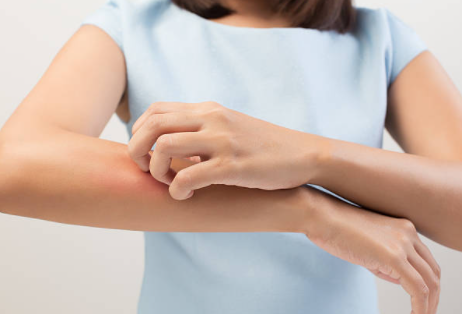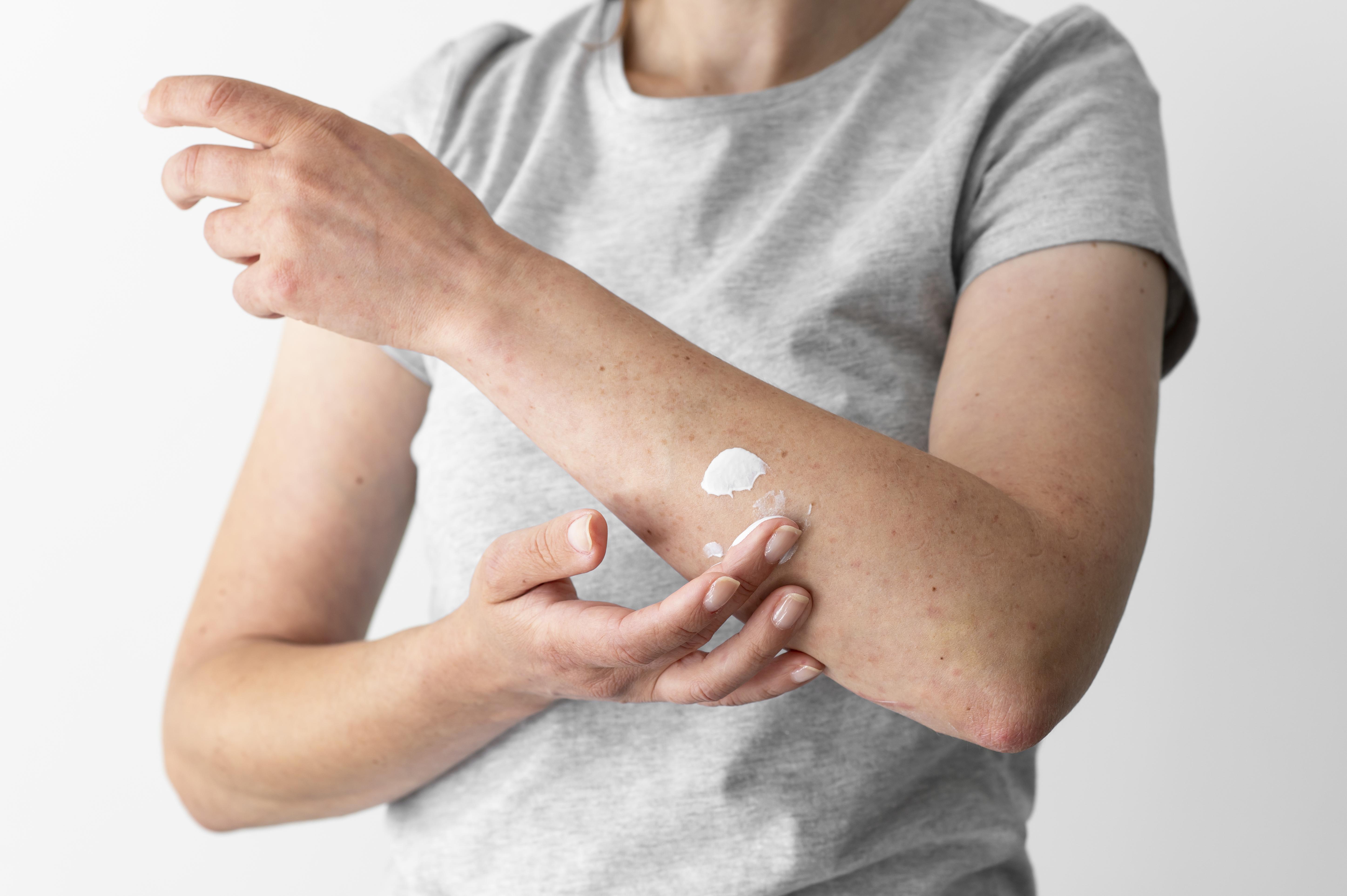PSORIASIS: CURABLE WITH THE RIGHT TREATMENT

Psoriasis, found in 1-2% of population, is a skin condition that seriously affects one’s everyday life. The exact cause of psoriasis is still unclear, as it may be caused by many factors, including genetics, immune disorders, external factors (stress, inadequate sleep, staying up late, drinking alcohol, smoking, or peeling and scratching). It can also be caused by certain diseases which can trigger the symptoms, such as obesity, hyperlipidemia and diabetes.
Types of Psoriasis
| Type | Appearance |
| Plaque Psoriasis | Thickened red patches covered with whitish scales with a distinctive shape. It usually shows up on your scalp, body, arms, legs and especially around the elbows and knees. |
| Guttate Psoriasis | Red and scaly small patches of less than 1 cm. Patients may have a history of an upper respiratory condition. |
| Pustular Psoriasis | Widespread inflamed bumps filled with pus, and a fever in severe cases |
| Erythrodermic Psoriasis | Fiery red skin covered with silvery scales from head to toe. This can appear if you suddenly stop taking your oral psoriasis medication, or from are other trigger factors. |
| Inverse Psoriasis | Chronic red patches with less scales. This is found around the armpits, the skin folds around your genitals and under your breasts. |
| Palmoplantar Psoriasis | Red patches covered with peeling scales with a distinctive shape. This may appear on the back of the hands and the soles of the feet. |
| Psoriatic Arthritis | Typically causes swollen joints, both on the large and small joints, including single and multiple joints. This is usually found in the knuckles and causes deformities in chronic cases. |
| Psoriatic Nails | Nail abnormalities such as pitted, loose, thick and deformed nails |

Treatment
- In cases of mild patches, a doctor may treat with topical drugs first.
- In cases of severe patches from head to toe, especially in patients with swollen joints, your doctor may consider treatment with oral medications, injections, and phototherapy, or treat along with topical medications.
Psoriasis Medications
| Topical Medications |
|
| Oral Medications |
|
| Phototherapy | Exposes the skin to ultraviolet light, recommended 2-3 times a week for at least 3 months. This is effective about 70-80% or higher with few side effects, and prevents recurrence of the disease. |
|
Biological Agents
|
Biological agents are new drugs, which include Secukinumab, Ixekizumab, Brodalumab, Guselkumab, Adalimumab, Ustekinumab, Etanercept and Infliximab, which affect the immune system, reduce inflammation, and slow the production of any substance that can stimulate inflammation. Performed by intravenous infusion or subcutaneous injection. They are also very effective and safe for treatment of psoriasis and swollen joints. |
If you find yourself with Psoriasis you can consult a Dermatologist at VitalLife Skin & Aesthetic Center for safe and effective treatment.

“Share your impression of Gautier Salinier, Asia Pacific Area Manager - Maison Léda, with better health outcomes. from the right health investment fill the body with full strength again style
SHOW MORE”.
SHOW MORE”.

“Share your impression of Jonathan Chen, CEO of Ascendant Biotech, who started with a holistic health check. Into a new way to take care of health that is on point ready to share the experience of receiving superior service Support fast, comfortable life, executive style
SHOW MORE”.
SHOW MORE”.


.png)
.png)




